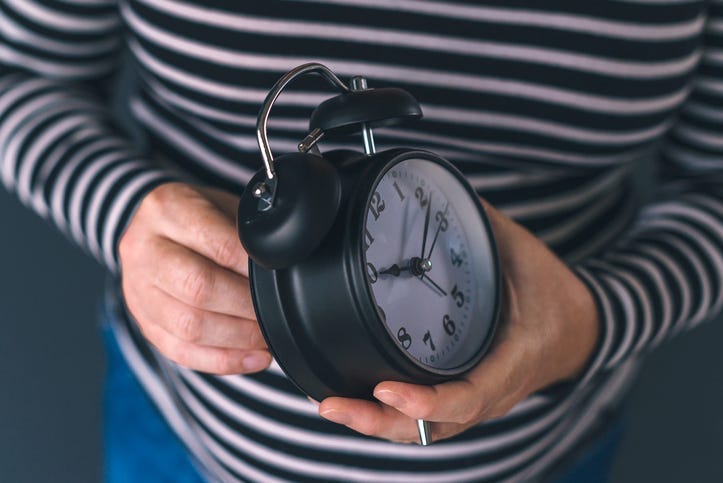
DETROIT (WWJ) - It’s daylight saving time again and for many of us, that means losing an hour of precious sleep as we adjust to the time change.
Daylight saving time begins again this weekend when we "spring forward" at 2 a.m. Sunday, March 8 — setting the clocks ahead one hour.
For many people, daylight saving time is less about "springing forward" and more about falling behind… on their sleep schedule. Studies have indicated that losing that extra hour of sleep can raise the risk of everything from heart attacks to car accidents, especially on the Monday following the time change.
We know it’s coming every year, but that doesn’t make springing forward any easier. Researchers say most people need three to five days to adjust to the time change. For a small percentage of people, it takes about a week or even more before they feel adjusted to the new time. If you’re feeling sleepy, short afternoon naps are recommended for a few days after the time change until the body adjusts.
Officials also recommend changing the batteries in your home’s smoke detectors and carbon monoxide alarms when you set your clocks forward. If the detectors are more than 10 years old, officials say you should replace them.
Why do we change our clocks? Daylight saving time was instituted in the United States during World War I in order to save energy for war production by taking advantage of the later hours of daylight between April and October. The passage of the Energy Policy Act in 2005 extended daylight saving time by four weeks — from the second Sunday of March to the first Sunday of November.
Daylight saving time will end Nov. 1, when we revert to standard time and set our clocks back one hour.
